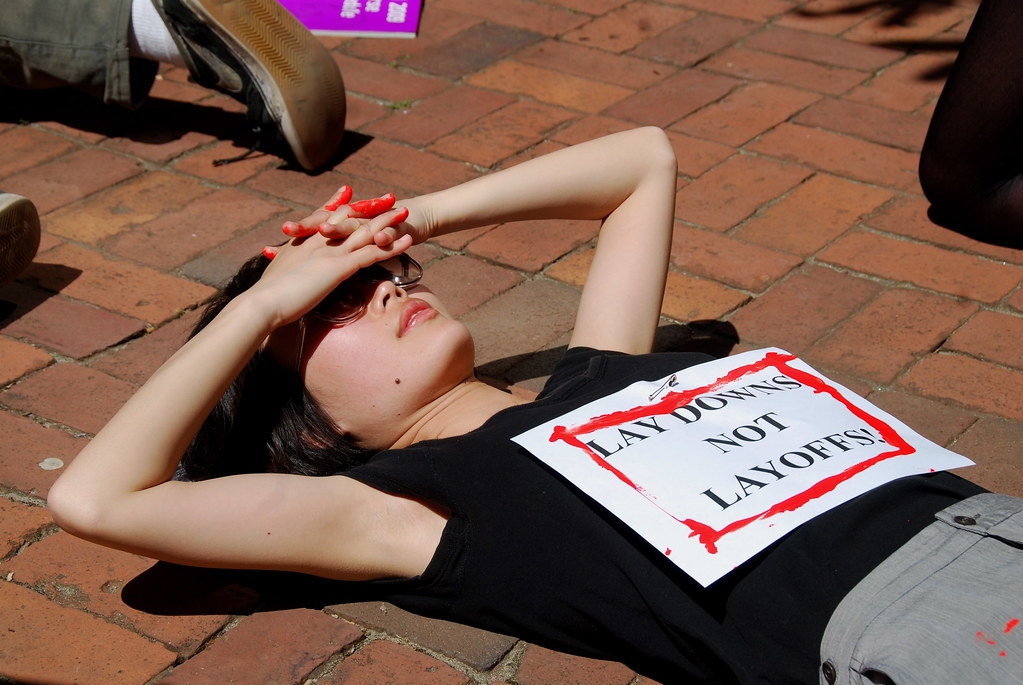
The landscape of celebrity entrepreneurship has seen a significant expansion into various sectors, with mental health being a recent frontier. In 2022, actress and singer Selena Gomez, alongside her mother Mandy Teefey and entrepreneur Daniella Pierson, launched Wondermind, a startup positioned to revolutionize access to mental health discussions. The venture’s stated ambition was to provide affordable avenues for individuals to address their mental well-being, contrasting with the often prohibitive costs associated with traditional mental health services.
However, what began with a compelling mission has reportedly descended into a complex corporate saga marked by allegations of financial instability, mismanagement, and unfulfilled commitments to employees and vendors. Recent reports from Forbes and The Cut have brought to light a series of troubling claims from current and former Wondermind staff, painting a picture of a company struggling to reconcile its noble intentions with its operational realities. These accounts raise critical questions about governance, financial oversight, and the challenges inherent when high-profile personal advocacy meets the rigorous demands of business administration.
This in-depth analysis delves into the intricate details of Wondermind’s journey, from its inspirational origins to its current state of crisis. We examine the foundational principles that guided its inception, the pivotal shifts in its leadership, and the escalating financial pressures that have led to significant employee distress. The focus remains on factual reporting and an objective presentation of the events as described by those directly involved and documented in media investigations.

1. **Wondermind’s Founding Philosophy and Celebrity Backing**Wondermind was established with a clear, resonant purpose: to destigmatize mental health conversations and make support more accessible. The personal experiences of its co-founders, Selena Gomez and Mandy Teefey, were central to this mission. Both had openly shared their struggles with mental health, lending authenticity and a deeply personal touch to the company’s genesis. Gomez, in an interview with Entrepreneur Magazine in 2021, articulated her desire to imbue all her ventures with a charitable or mental health component, stating, “Once I understood what was happening in my mind, I gained a sense of purpose.”
Her mother, Mandy Teefey, further emphasized the company’s intent to democratize access to mental health tools. Teefey recounted her own experience receiving support in a facility that cost $1,500 a day, acknowledging the prohibitive nature of such expenses for many. She expressed a desire to “offer the tools I was offered in a facility that cost $1,500 a day,” highlighting a core principle of Wondermind’s offering: high-quality mental health support without the exorbitant price tag. This commitment to accessibility and destigmatization formed the bedrock of the company’s public identity.
The involvement of a global celebrity like Selena Gomez, estimated by Forbes to be worth $700 million and by Bloomberg at up to $1.3 billion largely due to her Rare Beauty brand, provided Wondermind with an immediate platform and credibility. Her public advocacy for mental health was expected to be a significant asset, drawing attention and resources to the startup. This star power, combined with the personal narratives of the founders, created a compelling narrative that initially garnered considerable positive attention and support for Wondermind’s entry into the competitive mental wellness market.

2. **Early Investment and Market Positioning**The initial promise of Wondermind quickly attracted significant investor interest, underscoring the perceived potential of its mission and celebrity association. In 2022, just a year after its launch (some reports suggest 2021), the company successfully secured $5 million in a Series A funding round. This crucial investment was achieved at a valuation of $100 million, signaling strong market confidence in the startup’s early trajectory and its business model.
Notable investors in this round included Serena Williams’ Serena Ventures and the family office of real estate billionaire Barry Sternlicht. These endorsements from prominent figures in the venture capital and business world further solidified Wondermind’s standing and its perceived legitimacy within the burgeoning mental health tech sector. The capital infusion was intended to fuel the company’s growth, enabling it to develop and expand its offerings, which included articles, interviews, and podcasts focused on mental health topics.
Daniella Pierson, a co-founder and CEO alongside Teefey, previously described Wondermind to Forbes as a “sexier, more entertaining competitor” to established platforms like Psychology Today and WebMD. This positioning suggested an ambition to engage a younger, broader audience through a more dynamic and accessible content approach. The aim was not just to inform but to entertain, making mental fitness appealing and integrated into daily life, setting it apart from more clinical or academic resources.
Read more about: China’s Naval Ascendancy: A Data-Driven Examination of its World-Class Fleet’s Strengths and Strategic Vulnerabilities

3. **Leadership Transition and Operational Challenges**A pivotal moment in Wondermind’s operational history occurred in January 2023 with a significant shift in its executive leadership. Daniella Pierson, who had initially served as co-CEO alongside Mandy Teefey, departed from the company. The reasons for her exit remain undisclosed, as both Pierson and Wondermind declined to comment on the specifics of her departure when queried by Forbes. This left Mandy Teefey as the sole CEO, taking full operational reins of the mental health startup.
Teefey, with a background that included managing Selena Gomez’s career for many years, stepping down from July Moon Productions in 2014 and later serving as CEO of Kicked To The Curb Productions, which produced the Netflix series “13 Reasons Why,” assumed comprehensive control. However, this transition, according to two current employees who spoke anonymously to Forbes, marked the beginning of substantial operational challenges. These employees expressed concerns that Teefey lacked the extensive operational knowledge deemed necessary to steer a startup of Wondermind’s ambition toward sustained success.
The shift to a sole CEO, particularly one whose experience was more in creative production and talent management rather than direct startup operations, reportedly impacted the company’s strategic direction. The context suggests that the departure of a co-CEO with a different skillset, like Pierson, may have left a void in critical business areas. This new leadership structure would soon face the brunt of intensifying financial pressures and internal scrutiny.
Read more about: Stephen Muss: The Visionary Developer Who Rescued the Fontainebleau and Reshaped Miami Beach’s Destiny at 97
4. **The Emergence of Financial Difficulties**By early 2023, just months after its Series A funding, Wondermind reportedly entered a period of severe financial distress. Employees recalled Teefey informing them that the company was in dire financial straits and struggling to secure further funding. This marked a stark contrast to the initial $100 million valuation and the optimistic outlook projected at its launch, signaling an abrupt downturn in the startup’s fortunes. The struggle to obtain subsequent funding rounds became a critical issue impacting the company’s viability.
Indications of this crisis materialized concrete form with repeated failures to meet financial obligations. A number of Wondermind employees told Forbes that the company had not paid them in recent weeks. Additionally, the startup was alleged to owe tens of thousands of dollars to freelancers and vendors who had provided services, exacerbating the financial strain and creating a ripple effect of dissatisfaction and uncertainty among its external partners and internal team alike. The scope of these unpaid debts included a reported $60,000 owed to a PR firm and tens of thousands to freelance writers, some waiting over three months for payment.
Teefey herself acknowledged the severity of the situation, as recalled by one employee: “I’m carrying the entire company. If the company went down, me and Selena will be fine. But none of you will be fine. I’m doing this to make sure you all have f***ing jobs.” This statement, while reflecting a concern for her employees’ welfare, simultaneously underscored the precarious financial position Wondermind found itself in, with its leadership acknowledging a reliance on personal intervention to maintain operations.
Read more about: Joe Bugner, British Boxing Champion Who Fought Muhammad Ali and Joe Frazier, Dies at 75: A Retrospective

5. **Impact on Employee Compensation and Benefits**The deepening financial crisis at Wondermind had immediate and severe repercussions for its employees, most notably impacting their compensation and health benefits. The initial alarm was raised on March 31, when employees did not receive their paycheck for the second half of the month. This direct disruption to their livelihood was compounded by an even more unsettling development regarding their healthcare provisions, which are fundamental to employee welfare.
Later that same day, Teefey communicated to staff via email that their healthcare provider, Sequoia, had terminated employees’ benefits — including health, dental, and vision insurance — two weeks prior, on March 15. Employees were suddenly left without coverage and informed they would need to elect into COBRA coverage, a federal law allowing temporary continuation of health plans. Critically, they were also told they would need to cover the company’s portion of the premiums in addition to their own, with the promise of reimbursement only “after we raise our round,” a prospective event with no firm timeline.
Despite an initial resolution to the March payment issue, which involved two wire transfers covering the end of March and first half of April, along with partial reimbursement for health insurance payments, the problems re-emerged quickly. Wondermind missed payroll again on April 30, leaving employees without pay. This recurring pattern of missed payments and the sudden loss of essential benefits created significant financial hardship and eroded trust among the staff, forcing them to confront the instability of their employment with a company founded on principles of well-being.
Read more about: Navigating the Midlife Career Pivot: How Professionals in Their 40s and 50s Are Redefining Purpose and Achieving Deeper Fulfillment
6. **Allegations of Mandy Teefey’s Managerial Practices**As Wondermind grappled with its mounting financial woes, questions began to surface regarding Mandy Teefey’s leadership and managerial efficacy. Employees expressed concerns that Teefey, despite her good intentions and creative vision, lacked the necessary operational knowledge to effectively run a startup. One staffer suggested that a more effective approach might have been for Teefey to take an advisory role and hire an experienced CEO, rather than assuming sole leadership.
Further allegations detailed by employees painted a picture of inconsistent and at times unprofessional conduct within the office. Claims included Teefey watching TV for hours during work, allowing food delivery containers to pile up, and frequent use of Ritalin and liquid Benadryl. While Teefey has vehemently denied snorting Ritalin and refuted claims of being absent for weeks, she did concede to canceling meetings frequently, attributing absences to a “busy startup lifestyle” and instances of COVID-19. She dismissed employees’ statements as “baseless and unfair,” stating, “It’s unfortunate that a few disgruntled employees with an ax to grind can spread lies about me and distort the truth.”
Another significant point of contention involved Teefey’s alleged decision-making regarding potential revenue streams. Employees claimed that Teefey turned down crucial brand deals, including a multi-million dollar agreement with Airbnb, reportedly due to conditions that required Selena Gomez’s direct involvement. These decisions, they argued, directly contributed to the company’s financial downturn. Emma Wright, Wondermind’s chief of staff, defended Teefey, describing her characterization of the failed Airbnb deal as “insanely, grossly misleading” and praising Teefey’s leadership for her “pure grace” and singular focus on preserving staff livelihoods. This stark contrast in perspectives highlights the deep divisions and challenges within Wondermind’s corporate environment.

7. **Selena Gomez’s Disputed Role and Minimal Engagement**While Mandy Teefey assumed a central and often controversial role in Wondermind’s daily operations, the involvement of its celebrity co-founder, Selena Gomez, has been a significant point of contention. Gomez holds the title of Chief Impact Officer on the company’s website, a role that theoretically should leverage her considerable platform for the startup’s mission. However, several employees have presented a contrasting picture, suggesting her actual engagement has been minimal, leading to internal frustrations.
Staffers reportedly encountered substantial difficulties in attempting to capitalize on Gomez’s celebrity, a critical asset for a startup seeking broad reach and investment. One Wondermind employee told Forbes, “We have to fight with her agent to get her to do anything for us and she rarely does. And by ‘do anything’ I mean post something on Instagram or interview her for an article so it does good traffic.” This suggests a disconnect between the company’s need for celebrity endorsement and the practical ability to secure it, hindering efforts to drive public engagement and traffic.
The sentiment among some staffers was that Gomez was “just as culpable” for Wondermind’s struggles, arguing that she should have intervened given her mother’s alleged operational shortcomings. One employee reportedly expressed a desire for her to step in, stating, “If I had seen my mom in that state, I would have intervened. I would say, ‘This isn’t right.’” This perspective highlights the deep internal division and the emotional toll the company’s difficulties took on its workforce, who felt abandoned by a co-founder whose name carried immense weight.
A company spokesperson, however, has vehemently denied these claims, asserting that Gomez’s involvement “speaks for itself” and that the allegations of minimal engagement are “absolutely not true.” This official rebuttal attempts to safeguard Gomez’s public image and her association with the mental health venture. Nonetheless, the conflicting accounts underscore the complexities of celebrity-backed enterprises, particularly when the public persona clashes with the reported operational realities.
8. **Stalled Funding Rounds and Bridge Capital Issues**The financial stability of Wondermind, already fragile, was further destabilized by significant challenges in securing subsequent funding rounds. After an initial Series A round that brought in $5 million at a $100 million valuation, the company quickly found itself in a precarious position, desperately seeking more capital to sustain operations. This quest for funding became a recurring narrative of promises and delays, severely impacting employee morale and the company’s ability to plan for the future.
In a critical email to staff, Mandy Teefey attributed the immediate payroll and healthcare disruptions to a “delayed payment from an investor.” She informed employees that an investor “who was lined up to provide some critical bridge funding last week was not able to execute their transfer on time.” Teefey characterized the Series B closing as “imminent,” noting that Wondermind had “almost $8M committed to our series B and the bridge capital investor still working to send in funds.” Crucially, no Series B funding round has been publicly announced since this communication, indicating the persistent struggle.
During an all-hands meeting aimed at addressing employee concerns, Teefey reportedly did not name the investor responsible for the delayed funds but asserted that she would have personally covered the missing payments if she could. This statement, while intended to reassure staff, inadvertently highlighted the company’s reliance on a single individual for solvency. When an employee questioned the seemingly modest size of the $8 million Series B mentioned in the email, Teefey revised her projection, suggesting the round would ultimately be between $20 million and $30 million.
These ongoing delays and shifting figures surrounding funding painted a picture of instability. The inability to secure timely bridge capital and the protracted nature of the Series B negotiations underscored fundamental issues in investor confidence or Wondermind’s ability to meet investor expectations. This financial limbo directly contributed to the company’s operational paralysis, as essential projects were put on hold and the workforce faced continuous uncertainty regarding their livelihoods.
Read more about: Path to Peace or Peril? Alaska Summit Seeks Ukraine Resolution Amidst Proposed Territorial Shifts and Global Pressures

9. **Mandy Teefey’s Personal Financial Intervention and its Contradictions**In the face of Wondermind’s deepening financial crisis, Mandy Teefey has publicly positioned herself as the company’s lifeline, making dramatic claims about her personal financial sacrifices to keep operations afloat. This narrative has been central to her attempts to reassure employees and manage the internal fallout from missed payments and terminated benefits. However, these claims have been met with conflicting reports, adding another layer of complexity to the unfolding saga.
Employees recounted Teefey asserting her crucial role in sustaining the company. One employee, as told to The Cut, remembered Teefey saying, “I’m carrying the entire company. If the company went down, me and Selena will be fine. But none of you will be fine. I’m doing this to make sure you all have f***ing jobs.” This statement, while highlighting a concern for her staff, also revealed the precarious financial edge the startup was operating on, seemingly dependent on personal funds or interventions.
More recently, Teefey reportedly informed employees at an all-hands meeting that she had taken out a loan against her home to pay back all outstanding debts to employees, vendors, and freelancers. This move was presented as a significant personal sacrifice to ensure the company’s immediate financial obligations were met, with payments promised for specific dates. This action aimed to quell the immediate crisis and provide a temporary reprieve for the beleaguered staff and external partners.
However, a source close to the situation later told People magazine that Teefey’s claim about taking out a loan against her home was “not accurate.” This direct contradiction casts doubt on the veracity of Teefey’s public statements and raises questions about transparency within the company. Such conflicting information can further erode trust among employees and the wider public, complicating efforts to stabilize Wondermind’s image and operations.
Further complicating this narrative, an insider purportedly told People that Selena Gomez herself “immediately” took action upon learning of the financial crisis, investing “more money” into Wondermind. This suggests that the financial burden might not have fallen solely on Mandy Teefey, or that Selena Gomez’s involvement was more direct and substantial than previously reported. The divergence in these accounts creates a murky financial picture, making it difficult to ascertain the true extent and source of funding used to address the company’s debts.

10. **Widespread Layoffs and Staff Reductions**The culmination of Wondermind’s financial struggles and operational challenges materialized in a severe reduction of its workforce. A critical update revealed that the company undertook widespread layoffs, signaling a drastic measure to manage its dire financial straits and adjust to an unsustainable operational model. This development underscored the gravity of the crisis impacting the mental health startup.
An Editor’s Note, following the publication of one of the exposé articles, disclosed that a source confirmed Wondermind had laid off nearly two-thirds of its staff. This significant downsizing left the company with a skeletal crew, reportedly comprising just four individuals. Such a drastic reduction in personnel indicates a profound restructuring, likely necessitated by the inability to meet payroll obligations and secure sufficient operational funding to support a larger team.
The underlying financial issues that plagued Wondermind, including missed paychecks for existing employees and mounting debts to freelancers and vendors, directly precipitated these layoffs. The inability to consistently pay its workforce and external partners created an untenable situation, forcing leadership to make difficult decisions regarding headcount. The context surrounding the layoffs suggests a company struggling to maintain even basic financial commitments, let alone expand its mission.
These mass layoffs represent a stark contrast to the company’s initial ambitious vision and robust Series A funding. The reduction to a mere four employees implies a severe scaling back of Wondermind’s activities, likely impacting its capacity to produce content and engage with its audience as originally intended. It raises significant questions about the long-term viability of the company and its ability to recover from such a deep cut to its human capital and operational capacity.
Read more about: U.S. Layoffs Surge to Pandemic-Era Highs: Decoding the Complex Forces of AI, Government Downsizing

11. **Public Backlash and Credibility Concerns**The revelations surrounding Wondermind’s financial and operational troubles have ignited a significant public backlash, drawing scrutiny from internet users, fans of Selena Gomez, and the wider media. The detailed exposés from Forbes and The Cut sparked intense debate, particularly regarding the perceived disconnect between the company’s noble mission and its alleged internal dysfunction, heavily impacting its credibility.
Initial reactions saw some fans expressing sympathy for Selena Gomez, often pointing to the complexities of family dynamics when engaging in business. Comments on social media platforms like Reddit reflected sentiments such as, “This is sad,” and “I hate that the staffers seem to blame her for not doing more to help her mother. It’s not that simple when it comes to a parent.” This perspective sought to shield Gomez from direct blame, framing the situation as a regrettable outcome of a challenging family venture.
However, a substantial portion of the online discourse quickly shifted to severe criticism, particularly given Selena Gomez’s immense personal wealth. As one of America’s richest self-made entrepreneurs, with an estimated net worth ranging from $700 million to $1.3 billion, critics swiftly highlighted the apparent hypocrisy of her mental health startup failing to pay its employees. A fan commented, “For a company co-founded by a billionaire, it’s concerning that her own mother had to take out a loan to pay staff,” while another exclaimed, “Leave it to Selena Gomez who is a billionaire to keep trying to grift people out of money while being cheap to employees.”
Beyond financial concerns, the nature of Wondermind’s core offerings also came under fire, leading to questions about its fundamental mission. One user pointed out, “To be clear, it’s a media company, not a mental health company. They don’t provide any sort of treatments, it’s all blog posts and podcasts.” This sentiment suggests a disillusionment among some who initially believed Wondermind offered genuine mental health services, perceiving it instead as a content platform that capitalized on advocacy without delivering substantial support. The backlash reflects a broader skepticism towards celebrity-backed ventures that appear to prioritize profit or branding over genuine social impact.
Read more about: Beyond the Barrel: Unpacking Cracker Barrel’s Tumultuous History of Corporate Controversies and Cultural Clashes

12. **Wondermind’s Future and Ongoing Debate**As Wondermind navigates the tumultuous waters of financial instability, leadership controversies, and public scrutiny, its future remains uncertain, fueling an ongoing debate about its long-term viability and ability to fulfill its founding mission. Even with temporary resolutions to immediate payment issues, the fundamental questions about the company’s operational model and financial sustainability persist.
Employee sentiment, as captured in various reports, indicates a deep skepticism about the company’s ability to turn a new leaf. One person articulated this uncertainty, stating, “Even if this loan does come through, based on the debt and what everyone is owed, maybe everyone will be paid off… But then what?” Another employee, while acknowledging Mandy Teefey’s apparent belief in the company, lamented, “She means well. Still there have been so many promises unkept. A new, big opportunity is always on the horizon but never comes. I’m sad to see things go this way.” These voices reflect a widespread internal doubt about the company’s capacity to deliver on its pledges.
In response to the mounting crisis, a Wondermind spokesperson issued a statement asserting that the company had “rectified” the situation and that all owed money would be disbursed promptly. The spokesperson acknowledged, “Like many startups, Wondermind has been working through its own set of growing pains,” while also promising a transition “into a new chapter for Wondermind, and continuing our important work in mental fitness that helps hundreds of thousands of people.” This official stance attempts to project an image of recovery and renewed commitment to its original purpose amidst the turmoil.
Despite such assurances, the extensive layoffs, leadership questions, and the stark contrast between the company’s initial promise and its current predicament leave Wondermind at a crossroads. The debate over its credibility—whether it truly serves as a valuable mental health resource or merely a celebrity-driven media platform—will likely continue to shape its trajectory. The challenges faced by Wondermind serve as a potent case study on the complexities inherent in celebrity entrepreneurship, especially when ventures with social impact missions encounter the harsh realities of business administration and public accountability.
The unfolding narrative of Wondermind serves as a poignant reminder that even ventures born from the most altruistic intentions and backed by immense celebrity influence are not immune to the rigors of sound business practice. The intersection of personal advocacy, corporate governance, and financial responsibility in the public eye presents unique challenges, often forcing a re-evaluation of mission against operational reality. As Wondermind navigates its “new chapter,” the outcome will be closely watched, not just by its employees and investors, but by a public keenly interested in the genuine impact of mental health initiatives.”






